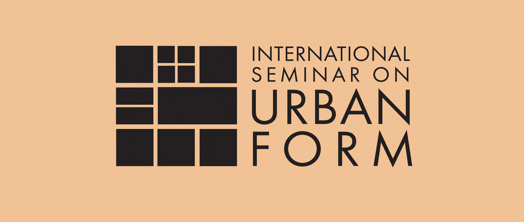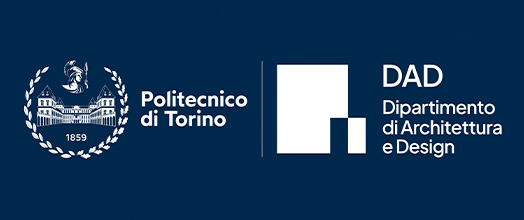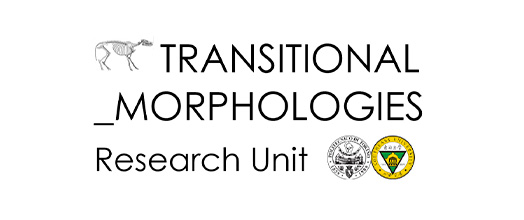ISUF
The International Seminar on Urban Form (ISUF) (https://urbanform.org/) is a leading academic organization that has united scholars and research groups focused on the form of the city for thirty years.
ISUF connects researchers and practitioners across disciplines, including geography, urban planning, architecture, history, anthropology, and urban design. Our global network fosters projects that explore urban form theory and specific studies on various settlement types, from neighborhoods to regions, and from historic villages to 21st-century mega cities.
Each year, ISUF promotes an international conference. The last ten editions took place in Porto, Rome, Nanjing, Valencia, Krasnoyarsk, Nicosia, Salt Lake City, Glasgow, Lodz/Krakow, Belgrade, and São Paulo. Each of these events has significantly contributed to the development of Urban Morphology as a discipline.
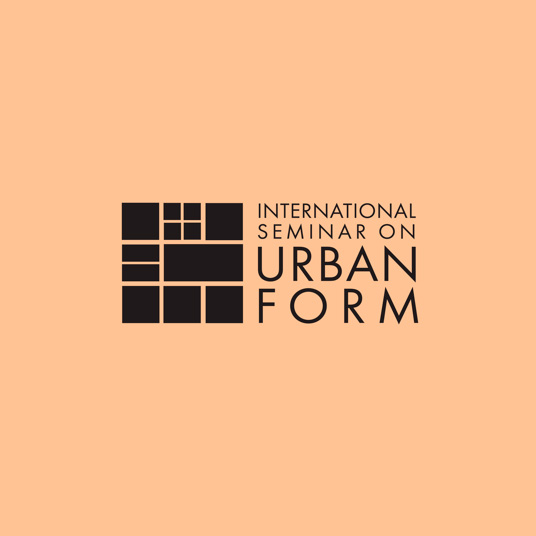
Representation of an urban area by Augusto Cavallari Murat, Urban Form and Architecture in the Baroque Time, Torino 1969
Transitional Morphologies Research Center at DAD/PoliTo
The Transitional Morphologies (TransMo) Research Centre focuses on observing and studying the dynamics of urban space transformation over time, addressing both retrospective and planning perspectives. In studies of urban form, the Anglo-Saxon geographical and Italian typological approaches recognize the morphogenesis (the process of development) of a settlement as the foundational step toward creating new management models, descriptive frameworks, and design experimentation.
Building upon the tradition of Italian morphological studies developed after World War II, the research on urban transitional morphologies was initiated at Politecnico di Torino by Augusto Cavallari Murat in the late 1960s. This work has continued with contributions from numerous Italian and international scholars from the 1980s through the first decade of the 21st century.
TransMo organizes annual workshops, design studios, publications, and seminars at Politecnico di Torino as well as at other national and international academic institutions.
A particular emphasis is placed on collaboration with the Chinese branch of the Transitional Morphologies Joint Research Unit (JRU), established in 2018 between Politecnico di Torino and Southeast University in Nanjing. This collaboration, directed by Bao Li and Marco Trisciuoglio, focuses on developing new tools for urban regeneration in Chinese cities.
In Spring 2025, Southeast University in Nanjing will host a Preparatory Seminar in anticipation of the ISUF Conference scheduled for June in Torino.
Southeast University Nanjing, Sipailou Campus, Auditorium (SEU Iconic Building)
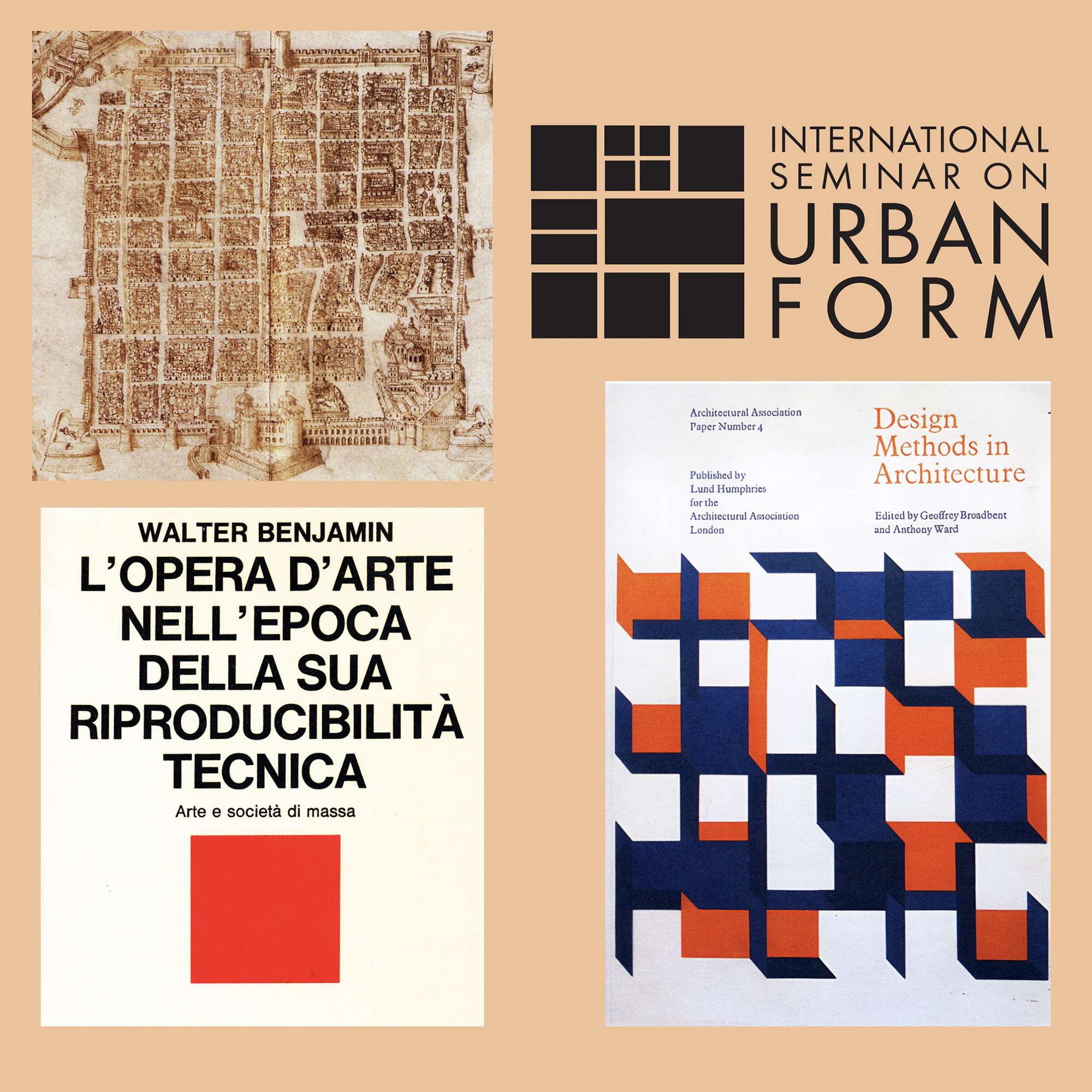
Logo
The conference logo combines tradition and innovation. It features a map of Torino by Girolamo Righettino from 1583, depicting the city’s original square layout from the Roman era as it transitioned to the Baroque urban form. Superimposed on this map is the design from the cover of the 1967 Portsmouth Symposium proceedings on Design Methods in Architecture, edited by Geoffrey Broadbent and Anthony Ward in 1969 for the Architectural Association in London, but altered to reflect Torino’s traditional colors of blue and gold. The logo is intended to evoke the square logo of ISUF. Additionally, the square motif was chosen by designer Bruno Munari for the Nuovo Politecnico book series by the Torino publishing company Einaudi, where Walter Benjamin’s book “The Work of Art in the Age of Mechanical Reproduction” (originally published in 1935) was released in Italian in 1967. The contents of that book served as an inspiration for the contents (and the title) of ISUF 2025 conference: “Urban Morphology in the Age of Artificial Intelligence”.
ORGANIZING COMMITTEE
Marco Trisciuoglio (Politecnico di Torino, Italy)
Michela Barosio (Politecnico di Torino, Italy)
Martina Crapolicchio (Politecnico di Torino, Italy)
Santiago Gomes (Politecnico di Torino, Italy)
Rossella Gugliotta (Politecnico di Torino, Italy)
Ezgi Nur Güngör (Politecnico di Torino, Italy)
Caterina Juric (Politecnico di Torino, Italy)
Alessandro Lovisolo (Politecnico di Torino, Italy)
Didem Türk Grigoletto (Politecnico di Torino, Italy)
Xiao Xiao (Politecnico di Torino, Italy)
STEERING COMMITTEE
Elena Baralis, Politecnico di Torino, Deputy Rector
Michele Bonino, Politecnico di Torino, Department Architecture and Design Director
Bao Li, Southeast University Nanjing, Co-Director “Transitional Morphologies” JRU
Vitor Oliveira, Universidade de Oporto, ISUF International President
Marco Trisciuoglio, Politecnico di Torino, Co-Director “Transitional Morphologies” JRU / ISUF 2025 Chair
SCIENTIFIC COMMITTEE
Anna Rita Amato, ISUF International
Michela Barosio, Politecnico di Torino
Meta Berghauser Pont, Chalmers University
Piero Boccardo, Politecnico di Torino
Olgu Caliskan, Middle East Technical University
Alessandro Camiz, Università di Chieti e Pescara
Paolo Carlotti, Sapienza Università di Roma
Roberto Cavallo, Tu Delft /EAAE
Nadia Charalambous, University of Cyprus
Michael P. Conzen, University of Chicago
Howard Davis, University of Oregon
Aleksandra Djordjević, University of Belgrade
Chen Fei, University of Liverpool
Heraldo Ferreira Borges, Mackenzie Presbyterian University
Martin Fleischmann, Charles University
Giovanni Fusco, Université Côte d’Azur /CNRS
Ilaria Geddes, University of Cyprus
Kai Gu, University of Auckland
Matteo Ieva, Politecnico di Bari
Anna Agata Kantarek, Cracow University of Technology
Kayvan Karimi, University College London
Karl Kropf, Oxford Brookes University
Ayşe Sema Kubat, Istanbul Technical University
Fabirizio Lamberti, Politecnicno di Torino
Peter Larkham, Birmingham City University
Michelle le Roux, Urban Collaborations South Africa
Teresa Marat-Mendes, Iscte Lisbon University Institute
Marco Maretto, Università di Parma
Stephen Marshall, University College London
Nicola Marzot, ISUF Italy
Bola Ogunbodede, University of Lagos
Anna Osello, Politecnico di Torino
Ozlem Ozer, Gebze Technical University
Ed Parham, Space Syntax Ltd.
Sergio Porta, University of Strathclyde
Fulvio Rinaudo, Politecnico di Torino
Ivor Samuels, University of Birmingham, Birmingham
Paul Sanders, Western Sydney University
Brenda Scheer, University of Utah
Shigeru Satoh, Waseda University, Japan
Roberta Spallone, Politecnico di Torino
Giuseppe Strappa, Sapienza Università di Roma
Tolga Ünlü, Çukurova University
Alice Viallard, Northumbria University
Alessandro Venerandi, University of Strathclyde
Susan Whitehand, University of Birmingham
Ding Wowo, Nanjing University
[to be implemented]
